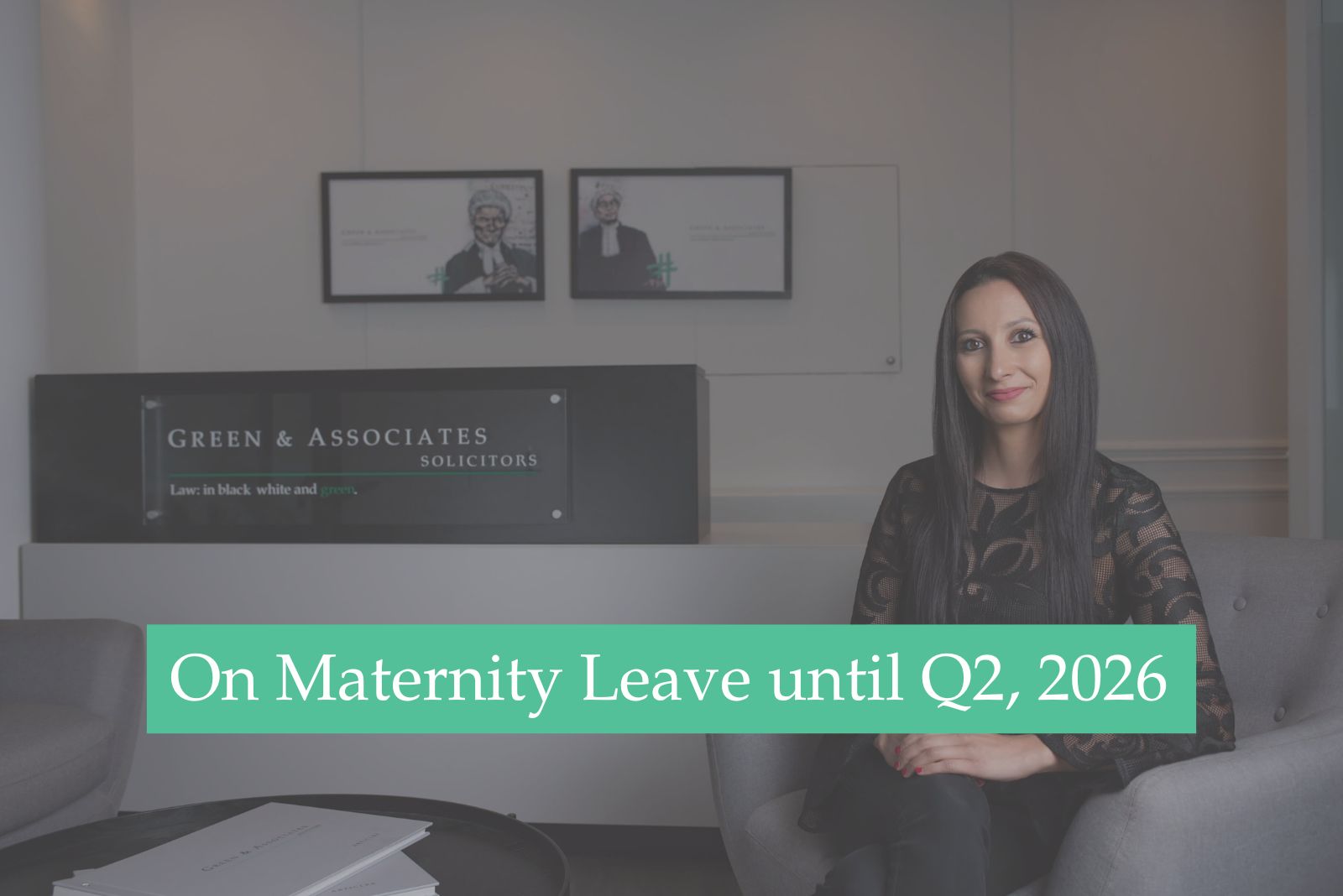LETTERS OF ADMINISTRATION LAWYER SYDNEY
Speak To An Experienced Letters of Administration Lawyer In Sydney
Guiding Families Through Intestate Estate Administration
If a person dies without a valid will, or if there’s no available executor, the estate cannot be managed until someone applies for Letters of Administration. This legal process allows the Court to appoint an administrator to manage and distribute the deceased’s assets.
At Green & Associates, we guide family members and beneficiaries through this challenging process with clarity and care.
When Are Letters of Administration Required?
You may need to apply for Letters of Administration when:
- The deceased died intestate (without a will)
- The will does not name an executor
- The named executor has died or is unwilling/unable to act
Our Services for Letters of Administration
- Assessing eligibility and identifying the appropriate applicant
- Preparing and lodging applications with the NSW Supreme Court
- Publishing required legal notices
- Drafting supporting affidavits and inventory of assets
- Managing court requisitions and contested applications
We’ve successfully acted in cases involving:
- Withheld wills or refused production
- Disputed beneficiaries and next-of-kin entitlement
- Urgent applications where time was critical
Green & Associates Letters of Administation
Contrasting a Grant of Probate, an application for Letters of Administration is the pathway to take if the deceased died without a Will, an Executor is not named in a Will, or the existing Executor/s are unwilling or unable to carry out their obligations.
There are two distinct types of applications for Letters of Administration:
- Letters of Administration: The deceased died without leaving a will (died intestate); and
- Letters of Administration with the Will annexed: The deceased left a Will but there is no executor available to apply for a grant of probate. An example would be where the Will did not name an Executor, or the sole Executor has died or is otherwise unable or unwilling to act.
In instances where the deceased died intestate in NSW and the assets owned are not the subject of joint tenancy, the rules of intestacy will apply. Under these rules, a grant of administration is usually made to the deceased’s next of kin, such as a spouse and/or children.
However, in instances where a Will was prepared but there is no named Executor, the Executor has died or is unable or unwilling to act, a beneficiary under the Will may apply for Letters of Administration with the Will annexed. In this circumstance, the rules of intestacy do not apply, rather, the Administrator is to administer the Estate in accordance to the deceased’s wishes in the Will.
The Grant of Administration appoints the Administrator as manager of the assets and liabilities of the Estate and empowers them to gather, organise, pay off the liabilities of the Estate, and distribute the deceased’s assets. Much like a Grant of Probate, it comprises of a cover page bearing the official seal of the Supreme Court and naming the Administrator of the Estate, and the subsequent pages set out the Inventory of Property.
It is important to note that the Supreme Court will not grant Letters of Administration if there are no assets held in NSW to be administered.
Meet Our Team

Dominic Green
Principal Solicitor
Specialising in: Criminal Law, Litigation & Disputes, Commercial Law, Corporations, Contracting & Regulator Affairs, Estate Law.

Arina Sian
Senior Associate

Lori Kadish
Associate

Zachary West
Associate

Lauren Cullen
Associate

Myriam Lahcini
Associate

Riva Thapa
Paralegal

Kristina Zervas
Paralegal

Angus McDonald
Paralegal

Ken Ozdemir
Marketing Manager

Ivy Green
Security & Debt Collection
Since joining the firm in 2021, Ivy has become an intergral part of the team. She is responsible for debt collection, office security and the mental wellness of both staff and clients.
FAQs: LETTERS OF ADMINISTATION
Who can apply for Letters of Administration?
Generally, the closest next of kin, a spouse, child or parent, can apply.
Do I need a lawyer?
While it’s possible to apply without legal help, errors often cause delays or rejection. Our experience ensures the process runs smoothly.
What if there are overseas assets?
We coordinate with foreign jurisdictions to manage cross-border estate matters.
What are the fees and charges?
Fees vary depending on the complexity of your matter, whether you’re drafting a straightforward will, contesting a family provision claim, or managing probate for a large estate. We offer fixed fees for many estate planning services and transparent quotes for all others before any work begins.
How many years have you been practicing wills and estates law?
While our team has broad experience in the law, Green & Associates has spent over a decade building a reputation in wills, estates, and litigation.
Where is Green & Associates Solicitors located?
We’re based in Kings Cross, Sydney, just minutes from the CBD. We also work with clients remotely across NSW and internationally, especially in complex estate matters involving cross-border assets or overseas beneficiaries.
What type of wills and estates matters can you help me with?
We advise on all aspects of wills and estates law, including will drafting, testamentary trusts, probate, letters of administration, family provision claims, contested estates, Powers of Attorney, Enduring Guardianship, and superannuation disputes.
What happens after the initial consultation?
We will confirm our advice in writing, provide a fee proposal, and set out a clear plan of action. If you choose to proceed, we begin work immediately and keep you informed at every stage of the process.
Will I need to go to court?
Not always. Many matters, including disputes, can be resolved through negotiation or mediation. However, if a dispute cannot be settled, we are fully prepared to represent you in court and guide you through the entire process.